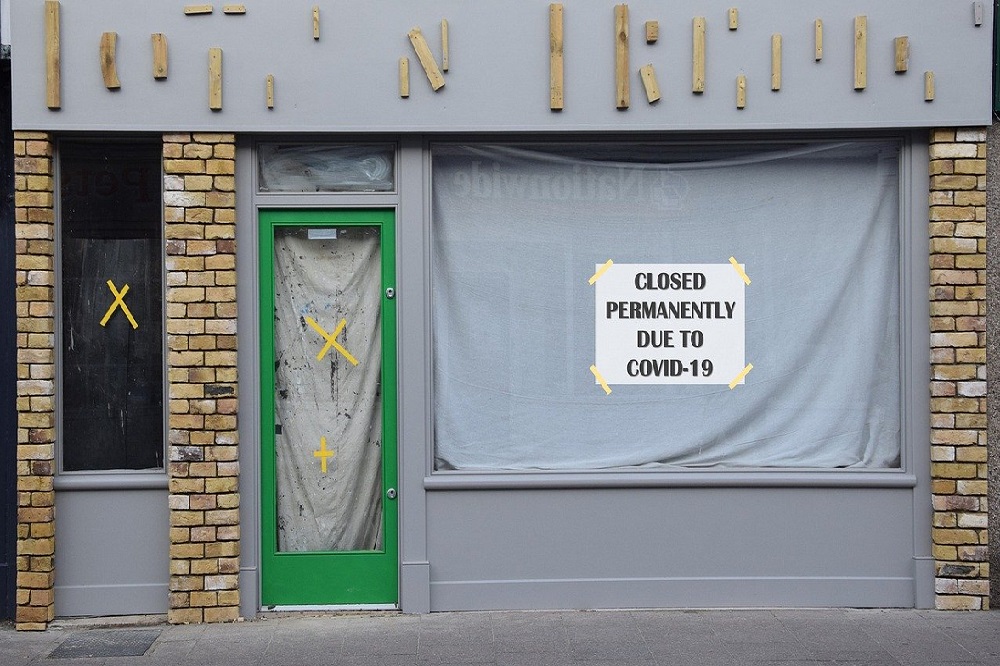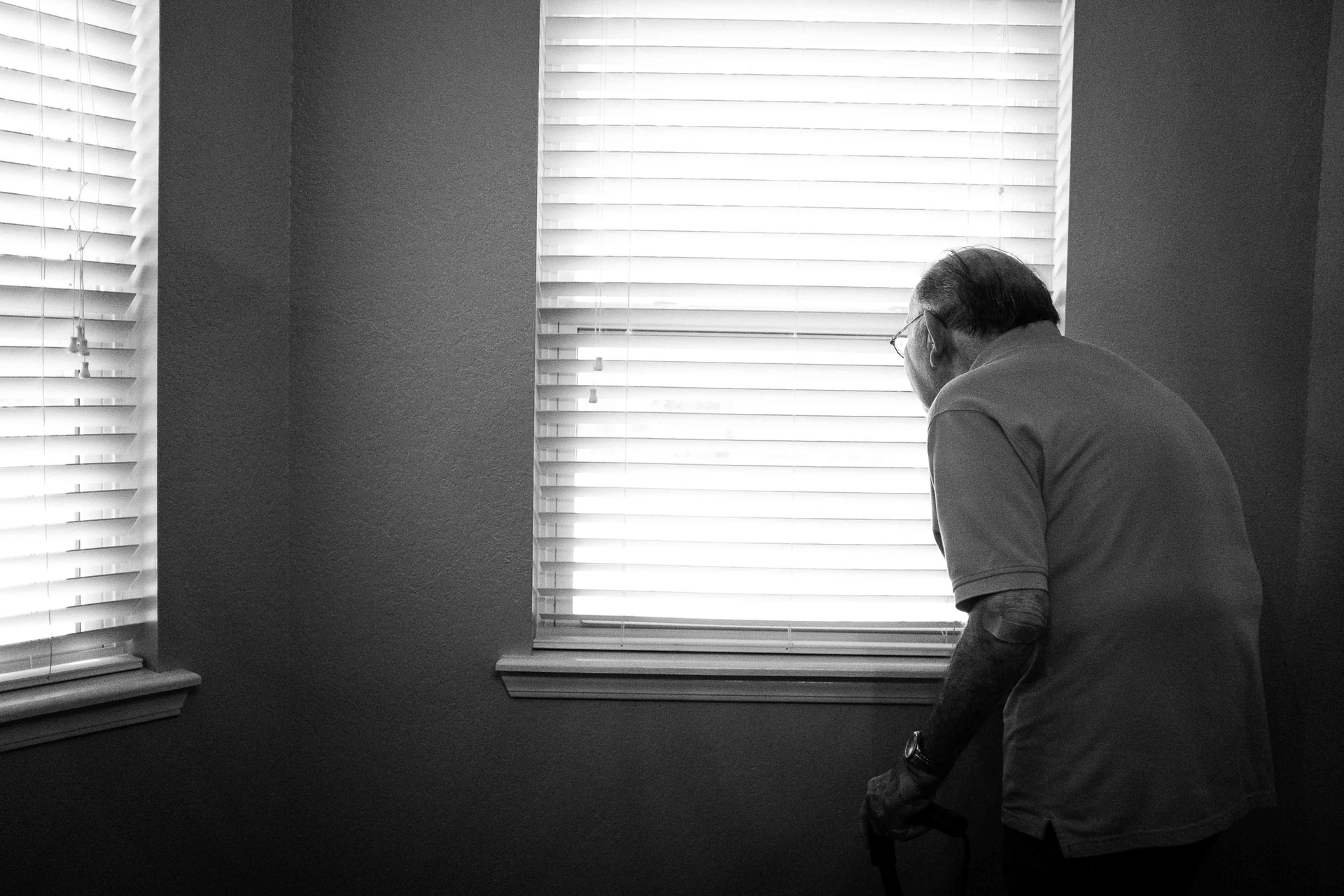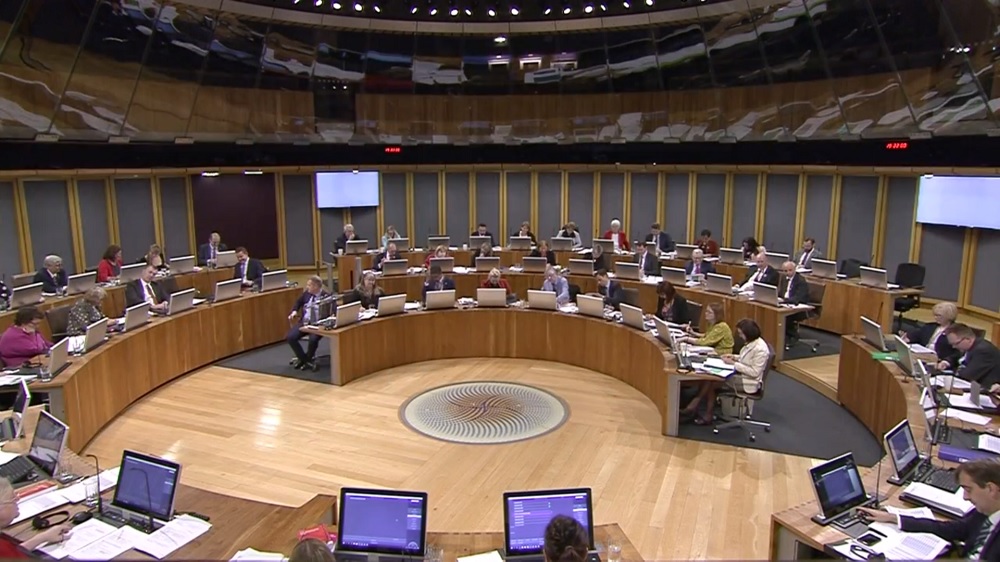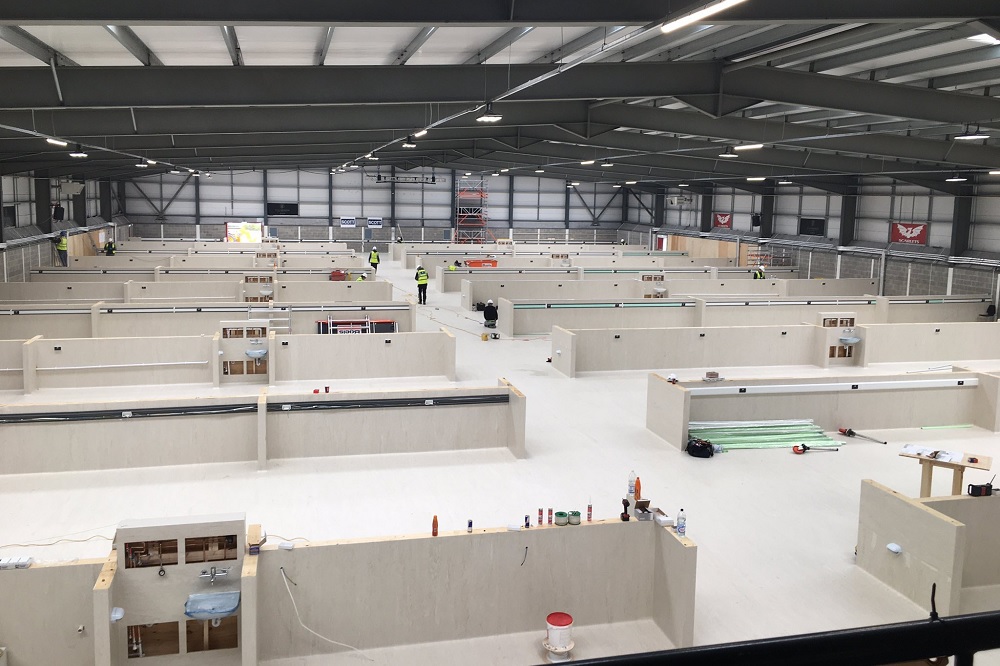Senedd roundup: Excess deaths in Wales drop below five-year average

Owen Donovan, Senedd Home
The latest figures from the Office of National Statistics confirm a continuing decline in the number of deaths caused by the coronavirus in Wales.
There were 57 deaths from the virus during the week up to 12 June, down from 100 the previous week.
Care Inspectorate Wales recorded just one death in care homes in Wales for the week ending the 12th, increasing the total number of deaths to 491.
The number of excess deaths, a comparison of the number of all registered deaths to previous years, has now fallen to below the five-year average, the first time this has happened since the start of the pandemic in March.
The total number of deaths from all causes in Wales for the week was 574, 2.4%, lower than the average.
Including deaths that occurred up to 12 June but were registered up to 20 June, the provisional total of deaths processed so far has increased to 2,370. The total calculated by Public Health Wales is 1,449 deaths.
The PHW calculation is lower as it only includes the number of deaths reported to them among patients who had tested positive for COVID-19, regardless of place of death.
The ONS provides figures based on all deaths registered involving Covid-19 according to death certification, whether in or out of hospital.
Public Health Wales confirmed five new deaths from coronavirus on Tuesday, raising the total number of deaths from the virus to 1,483.
There were also 98 new cases reported, bringing the total of confirmed infections in Wales to 15,295. There were 5,998 tests carried out in the last 24 hours.

Welsh Government ‘desperately concerned’ about economy
Health Minister Vaughan Gething said the Welsh Government is “genuinely desperately concerned” about the prospects for the Welsh economy at Tuesday’s coronavirus press briefing.
However, Mr Gething warned that restarting the economy only to have to reintroduce further lockdown restrictions could lead to “economic scarring”.
Last week professor Chris Jones, Deputy Chief Medical Officer of Wales, recommend the government’s focus should be “cautiously rebalanced towards reducing the wider economic and societal impacts of the pandemic” in his advice to ministers ahead of last Friday’s review of the coronavirus lockdown measures.
Professor Jones wrote in his report: “In addition to the direct impact of the virus, it is evident that the longer term societal impacts of COVID-19 are likely to be very significant due to the known harms that result from economic downturns, and particularly from the associated increases in unemployment.
“Learning from previous recessions shows this can have the hardest impact on those already disadvantaged and will almost certainly increase inequalities.
“Persisting adverse effects include increased risks of recurring periods of unemployment, lower pay, lower well-being and a higher incidence of chronic health conditions.”
Last week the Office of National statistics confirmed that 316,500 Welsh workers have been furloughed since March under the UK Government scheme to preserve jobs, and the ONS also reported that out of work benefit claims have doubled In Wales compared to last year.
“We know that if we have good economic conditions when people have good jobs and are relatively well paid, then actually there are fewer public health challenges. We know that poor health leads to poor economic outcomes too,” Mr Gething said.
“We also know that for the economic losses people are suffering – actually, if we take a cavalier approach, which we have not done in Wales, then we can see more economic activity starting in a way that wasn’t safe.
“That wouldn’t just lead to a public health problem – not just a loss of life – but it also lead to a sort of economic scarring that many economists are rightly concerned about if we had to go into an earlier and harder lockdown.”

No change of advice to those shielding in Wales
The Deputy Chief Medical Officer for Wales, Dr Chris Jones, has issued a statement stressing that changes to the advice issued by the UK Government yesterday to people shielding does not apply in Wales.
Health Secretary Matt Hancock announced that people with underlying health issues who are most at risk from coronavirus will no longer have to shut themselves away in their home and can mix with other people from 6 July in England.
From 1 August, the 2.2 million who have been shielding from the virus in England will receive only local authority and voluntary help and can return to their jobs if their workplace is “Covid-secure”.
At the beginning of June people shielding in Wales were advised they could start to exercise outside and told they could meet with people from another household in their local area outdoors.
They were also told there would be no further significant changes to the advice until 16 August at the earliest.
There are around 130,000 people in Wales who are currently shielding.
“We know shielding is not easy, but we are continuing to advise this group of people to take these measures because, although coronavirus is declining in Wales, it has not gone away and these shielding measures will continue to protect this group of people,” Dr Jones wrote.
“This is advice only – shielding is not compulsory. These measures and advice are there to help protect you from contracting coronavirus and protect you from developing a potentially serious illness.”
“I would like to reassure those who are shielding that we have not forgotten about them. We keep the shielding advice under constant review as we know how hard shielding is.
“As we learn more about coronavirus, we may be able to change the advice to make it more responsive to people’s individual risk. We will work with the other UK nations to develop a tool to give a more personalised risk assessment and help guide people about the steps they should take.”

Record level of complaints as Members of the Senedd are accused of weaponising standards procedure
In his annual report (pdf), the Acting Standards Commissioner, Douglas Bain TD, has suggested some MSs were using the official complaints system as a weapon to attack other MSs and parties.
A record 106 new complaints were received during 2019-20 – a 147% increase on the previous year – of which 84 were rejected as inadmissible.
58 complaints related to conduct on social media. However, the Acting Commissioner rejected issuing new guidance to members so as to prevent lower standards of behaviour being accepted on social media when compared to other forms of media.
Just over three-quarters of complaints were made by members of the public, with the remainder coming from within the Senedd itself – 13.2% from Members and 10.4% from the Clerk of the Senedd. One unnamed MS (by virtue of the quoted figures of complaints by party, likely to be an Independent) has reportedly made seven complaints about other members – only one of which was upheld – and the Acting Commissioner had reason to believe that some complaints from the public were instigated by a Member.
“One regrettable practice that became apparent during the year was the willingness of a small number of Members to use the complaints process as a political weapon. As noted above, one Member was responsible for more than half of all complaints made by Members. It was also clear that on other occasions a small number of Members had used a member of the public to make a complaint on their behalf.”
– Acting Standards Commissioner, Douglas Bain TD
Seven complaints are set to be carried forward into 2020-21. The process of appointing a new Standards Commissioner is currently underway following the resignation of the previous Commissioner, Sir Roderick Evans QC, in November 2019.

Minister forced to defend under-used field hospitals following lockdown success
Health Minister, Vaughan Gething (Lab, Cardiff S. & Penarth), was forced to defend a £166 million network of 17 field hospitals across Wales after figures revealed that only one – Dragon’s Heart Hospital at the Principality Stadium in Cardiff – actually received patients.
While this is a sign that lockdown restrictions worked to contain the spread of Covid-19, Swansea University’s Prof. Ceri Phillips told BBC Wales it was a poor use of resources, adding that “elective operations were cancelled, the level of demand was reduced, out-patients was reorganised so people weren’t coming into hospital.”
The Minister accepted the Welsh Government would’ve made different decisions with the benefit of hindsight, but the need for field hospitals was made apparent when Italy’s health service was overwhelmed at the start of the (first wave of the) pandemic.
The Minister said, “If we had needed extra capacity, in much greater numbers, and I had not acted as I did, I think the public would have rightly said, ‘Why on earth didn’t that man in charge do something about it?”

Llantrisant’s Royal Glamorgan Hospital is set to retain its full-time A&E department.
The hospital’s A&E department – which mainly serves Rhondda Cynon Taf – had been threatened with a downgrade or closure following the retirement of a consultant, leading to questions over the safety of services.
The proposals prompted several well-attended protests, including one at the Senedd. In February, the Senedd supported a motion calling for A&E services to be protected.
New clinical leadership, additional recruitment and support from other hospitals have been deemed enough to save the A&E. The board of Cwm Taf Morgannwg are set to rubber-stamp the decision at their monthly meeting next Monday (29th June).
The health board’s medical director, Dr Nick Lyons, said: “While there is much to do, our teams remain committed to building on the progress which has been made. We will also be working in partnership with our communities to develop and design minor injury and illness services, so they are accessible and used appropriately for their needs.”
The news was welcomed by Labour and opposition MSs, who congratulated those who campaigned against the proposals.

Investigation promised as Valleys communities are hit with floods yet again
Rhondda Cynon Taf Council has pledged to speed up their investigations after parts of the Rhondda were hit with flooding following torrential rain and thunderstorms last week.
The Valleys were amongst the areas which took the brunt of storms Ciara, Dennis and Jorge in February/March 2020. When floods hit last week, many households and businesses were still in the process of cleaning up their properties.
The flooding is suspected to be linked to blocked culverts and poorly functioning water pumping stations.
Leanne Wood MS (Plaid, Rhondda) said: “We need an inquiry into why these areas are suddenly so vulnerable to flooding. This work should have happened already; even with restrictions around the Covid-19 pandemic.”
Leader of RCT Council, Cllr. Andrew Morgan rejected a full inquiry but promised answers as soon as possible: “It does not appear that the culvert, which contributed to the flooding last February, was the cause of yesterday evening’s flooding in Pentre….To that end, I have asked officers to urgently bring forward a report that looks into the causes of flooding and identifies what action needs to be taken.”

£3 million given to Fire and Rescue Authorities to help the response to national emergencies
Fire and Rescue Authorities (FRAs) in Wales have been awarded £3 million in additional funding by the Welsh Government, to support national resilience capabilities and the response to national emergencies.
Split between all three Welsh authorities, the funding will support FRAs in how they respond to chemical, biological, radiological or nuclear incidents; serious flooding; incidents involving the collapse of buildings or other structures; and terrorist attacks; paying for specialised vehicles and equipment, along with the crews that operate them.
To help assist with the recent Covid pandemic, Welsh Fire and Rescue Authorities have deployed some of the assets funded to support national resilience to the Welsh NHS. This includes five mass decontamination units, which have been provided to hospitals within Wales to help serve as triage or testing facilities for suspected Covid patients. Equipment and crews were previously utilised as part of the response to Storms Ciara and Dennis in February.
Under this year’s grant, personal protective equipment will be upgraded along with LCD detectors and existing vehicles will be serviced and maintained. The fund will also ensure specially trained personnel are available to operate national resilience vehicles and equipment, to respond to the risks and threats identified at a national and UK level.

Regeneration project in Wrexham takes step forward
A regeneration project in the Mold Road area of Wrexham has taken a step forward with an agreement reached to sell parcels of land to the Welsh Government.
Glyndwr University, Wrexham Council and the Welsh Government have partnered to take forward the Wrexham Gateway project.
The project will see a new bus-rail interchange built near Wrexham General station and a 5,000 all-seater upgrade of the Racecourse Ground’s terraced Kop Stand to enable it to host international events.
Economy & Transport Minister, Ken Skates (Lab, Clwyd South) said: “It shows our commitment to drive the redevelopment of this part of Mold Road forward. We are demonstrating our determination to maintain momentum, even through the Coronavirus crisis, by securing these two essential sites.”
Support our Nation today
For the price of a cup of coffee a month you can help us create an independent, not-for-profit, national news service for the people of Wales, by the people of Wales.




